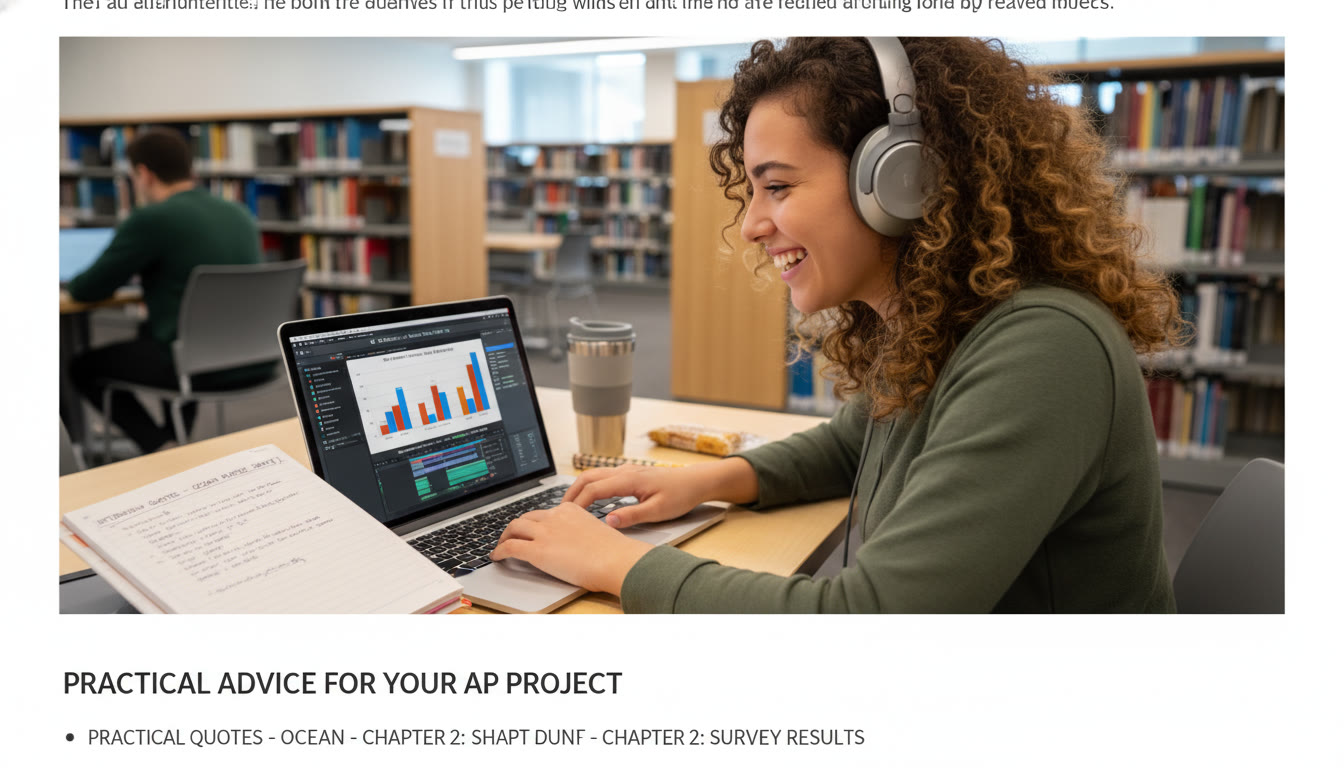Why APs Matter for Aspiring Journalists Headed to Mizzou
Let’s start with a simple truth: journalism is a craft that lives at the intersection of curiosity, clear writing, and disciplined thinking. At the University of Missouri’s School of Journalism (Mizzou), those traits are prized — and Advanced Placement (AP) courses are one of the clearest ways to demonstrate them in high school. APs don’t just help with college credit; they show admissions readers that you’ve pushed yourself with college-level work and that you’ve developed the habits that journalism schools reward: research rigor, critical reading, and persuasive, precise writing.
Two Kinds of Value APs Provide
- Academic signaling: High scores in AP English, History, or Statistics tell Mizzou you can handle the reading and analysis-heavy coursework that a journalism degree requires.
- Skill building: AP classes develop note-taking, evidence-based argumentation, data literacy, and disciplined project work — all habits that make you a stronger reporter and storyteller.

Which APs Best Prepare You for Journalism at Mizzou
Not all AP classes are equally relevant to a journalism path. That said, a mix of humanities, quantitative reasoning, and creative practice will make you a well-rounded applicant and student.
Core AP Courses to Prioritize
- AP English Language and Composition: The most direct AP for journalists. It focuses on rhetoric, analysis of non-fiction, and synthesis of sources — central newsroom skills.
- AP English Literature and Composition: Great for strengthening close reading and literary expression. Useful if you’re interested in feature writing, critique, or narrative journalism.
- AP U.S. History or AP World History: Context matters in reporting. These courses build the historical perspective that helps you ask smart questions and spot underlying trends.
- AP Statistics: Data journalism is growing fast. AP Stats gives you the language of numbers and an introduction to interpreting and presenting data responsibly.
- AP Government and Politics (U.S.): Critical for prospective political reporters — it sharpens understanding of institutions, policy, and how to read primary documents.
Complementary APs That Add Edge
- AP Psychology: Human behavior insights help with interviews and storytelling.
- AP Computer Science Principles: Basics of digital tools, algorithms, and ethical questions around technology — increasingly relevant in journalism.
- AP Studio Art or AP Art and Design: For those leaning toward visual storytelling, design portfolios, or multimedia journalism, an art AP can highlight visual literacies.
How to Build a Four-Year High School Plan with APs
Think of high school like designing a portfolio: you want depth in some areas and breadth in others. Here’s a sample progression that balances rigor with sustainability.
Sample AP Roadmap (9th–12th Grade)
| Year | Focus | Recommended APs | Why This Works |
|---|---|---|---|
| 9th Grade | Foundation & Exploration | None (Honors English, intro courses) | Build reading/writing stamina; join school paper or digital media club. |
| 10th Grade | First AP Experience | AP English Language, AP World History (if ready) | Start demonstrating college-level analysis and writing. |
| 11th Grade | Depth | AP U.S. History, AP Statistics, AP English Literature | Junior year is pivotal for GPA and standardized testing timing. |
| 12th Grade | Polish & Portfolio | AP Government, AP Psychology, AP Studio Art or CS Principles | Finish strong with courses that align to intended journalism focus. |
Note: This is an adaptable template. Some students may take APs earlier or later depending on readiness; it’s better to take fewer APs well than many APs poorly.
Beyond AP Scores: The Portfolio That Journalism Wants
Mizzou’s School of Journalism — like leading journalism programs — looks for demonstrated storytelling, curiosity, and initiative. A combination of AP coursework and a strong portfolio or extracurricular record will give you the best chance.
What to Include in a Journalism Portfolio
- Published articles from your school newspaper or local publications (even online blogs count).
- Long-form feature or investigative pieces that show depth of reporting.
- Multimedia work: short podcasts, video packages, or infographics (especially if you’re interested in digital journalism).
- Data-driven stories that show you can interpret numbers and present findings clearly.
- Class projects from AP courses that involved research, source synthesis, or media production.
How APs Feed Your Portfolio
AP assignments can be repurposed into portfolio pieces. For example, an AP Research or AP Language synthesis paper could be adapted into a long-form article. AP Statistics projects can underpin a data story. That crossover is smart — it demonstrates both academic rigor and practical application.
Application Strategy: What Admissions at Mizzou Sees
Admissions readers look for patterns: consistent intellectual curiosity, improvement over time, and commitment. Here’s how APs and extracurriculars make a compelling case.
Quality Over Quantity
Admissions officers prefer well-executed APs in subjects tied to your intended major. If your passion is journalism, prioritize AP English and related humanities or data courses. A mix of high scores and strong writing samples usually speaks louder than a long list of rushed AP attempts.
Showcase Authenticity
Use your application essays and portfolio to tell a coherent story. Maybe you started the school paper to give voice to underrepresented students, or you used AP Statistics to reveal a local trend. Concrete anecdotes show impact — not just interest.
Navigating AP Exams and College Credit at Mizzou
AP exam scores can sometimes translate into college credit or advanced placement, which can let you move faster into upper-level journalism classes or free up room in your schedule for internships. Policies change, so double-check Mizzou’s credit policies before making course decisions. Meanwhile, aim to use APs as evidence of your readiness rather than a guarantee of credit.
Study Habits That Win on Exam Day
- Create a study calendar that treats AP prep like a semester-long project, not a cram session.
- Practice with past free-response questions and time yourself.
- Form a study group to workshop essays and exchange feedback — journalism thrives on peer review.
- Use mock interviews and recording tools to improve clarity and oral presentation.
How to Balance AP Rigor with Real-World Reporting
High school should not be an academic sprint that squeezes out practical experience. Reporters learn by reporting. Balance AP coursework with time on the ground: covering a school board meeting, producing a podcast episode, or publishing an investigative piece about your community.
Practical Tips for Time Management
- Schedule two dedicated blocks each week for reporting: one for interviews and one for editing/rewrite.
- Use AP project deadlines as incubators for longer articles — kill two birds with one stone.
- Don’t overcommit to clubs; join roles where you can grow (editor, multimedia lead) rather than accumulate titles.
Preparing for the Mizzou Interview and Supplementary Materials
Some programs value interviews or supplemental portfolios. If offered, treat them as storytelling opportunities: be ready to discuss your favorite stories, your process, what you learned from mistakes, and which courses (including APs) shaped your thinking.
Common Interview Themes to Prepare For
- What stories have you pursued and why?
- How do you handle ethical dilemmas in reporting?
- Which AP projects or essays best represent your work?
- Where do you want to take journalism, and how will Mizzou help?
Financial and Practical Considerations
AP credit can sometimes reduce tuition costs by shortening time-to-degree, but this varies. Also consider how internships (often unpaid) and semester projects affect your finances and scheduling. Research scholarships offered by Mizzou’s journalism school and by external organizations focused on reporting and media.
How to Use Tutoring and Mentorship Effectively (Including Sparkl’s Personalized Tutoring)
Targeted support makes a difference. Tutoring isn’t about outsourcing learning — it’s about accelerating skills and giving you a feedback loop that simulates newsroom editing. One-on-one guidance helps you refine voice, argument structure, and data interpretation.
What to Look for in Tutoring
- Expert tutors with journalism experience or AP teaching backgrounds.
- Personalized study plans that map to your AP calendar and portfolio goals.
- Opportunities for iterative feedback on real reporting and essays.
Services like Sparkl’s personalized tutoring can fit naturally here: their 1-on-1 guidance, tailored study plans, and expert tutors — combined with AI-driven insights — can help you sharpen AP essays, prep for exams, and refine portfolio pieces. Use tutoring to stress-test your drafts and to practice interviews until your responses are crisp and authentic.
Real-World Examples: Turning AP Work into Published Stories
Imagine a sophomore in AP English Language who wrote a research-based synthesis on school lunch quality. By using AP research methods, interviewing the cafeteria staff and students, and applying AP Statistics to analyze participation data, they produced a multimedia piece for the student paper that later won a regional award. This is precisely the kind of initiative Mizzou notices: academic skill turned into community reporting.
Mini Case Study: From AP Project to Internship
- Start: AP U.S. History research paper about zoning and urban development.
- Next: Local reporting examining zoning decisions in your town, interviewing officials, and compiling public records.
- Outcome: Published investigation in a local outlet; internship offer from a regional news organization the following summer.
Common Mistakes Students Make — and How to Avoid Them
- Mistake: Treating APs only as credit-chasers.
Fix: Use APs to build concrete skills you can showcase — clear writing samples, data projects, multimedia pieces. - Mistake: Overloading senior year with APs and extracurriculars.
Fix: Plan for depth earlier; use senior year to polish and produce a strong portfolio. - Mistake: Ignoring feedback.
Fix: Seek iterative critique — from teachers, editors, or tutors — and revise until each piece is tight.
Checklist: Make Sure You’re Application-Ready
- Strong AP coursework in English and at least one quantitative or history AP.
- A portfolio with 3–6 high-quality published or classroom pieces showing range (news, feature, multimedia, data).
- Letters of recommendation from teachers who can speak to your reporting, writing, and intellectual curiosity.
- Evidence of initiative: started a column, launched a podcast, organized a reporting project, or earned internship experience.
- Clear personal statement that connects your AP learning to your journalistic goals.

Next Steps: Practical To-Dos for Students and Parents
Start by mapping current strengths to the AP roadmap above. Parents can help by ensuring balance (sleep, time for reporting), supporting opportunities (driving to interviews, funding software or hosting for digital portfolios), and encouraging revision rather than perfectionism. Students should pick one long-term reporting project to develop over a year — a project that leverages AP assignments, demonstrates persistence, and yields publishable work.
Timeline for Junior Year (Key Year)
- Fall: Finalize AP exam study plan; begin a major reporting project; meet with a counselor about course load.
- Winter: Submit pieces to student paper/local outlets; begin drafting personal statements; use tutoring for essay polish.
- Spring: Take AP exams; finalize portfolio; request recommendations; apply for internships.
Final Thoughts: Be a Curious, Prepared Storyteller
Mizzou values journalists who can think, investigate, and communicate. AP courses are tools — powerful ones — to sharpen those muscles. But the heart of good journalism is practice. Pair your AP rigor with real reporting, embrace feedback, and curate a portfolio that shows not only what you know but what you can do with what you know.
If you want targeted help turning AP projects into portfolio pieces or preparing for AP exams and the Mizzou application, consider focused tutoring and mentorship. Personalized approaches — whether through school mentors or services like Sparkl’s 1-on-1 tutoring with tailored study plans and expert review — can speed your growth and give your application the polish it deserves.
Remember
APs are a runway, not the destination. Use them to practice the craft, produce work you’re proud of, and build a clear narrative for why journalism matters to you. Do that, and you’ll arrive at Mizzou — or a program like it — ready to report, write, and tell the stories that need telling.
Wishing you curiosity, clarity, and deadlines you can meet. Go tell the story only you can tell.















No Comments
Leave a comment Cancel